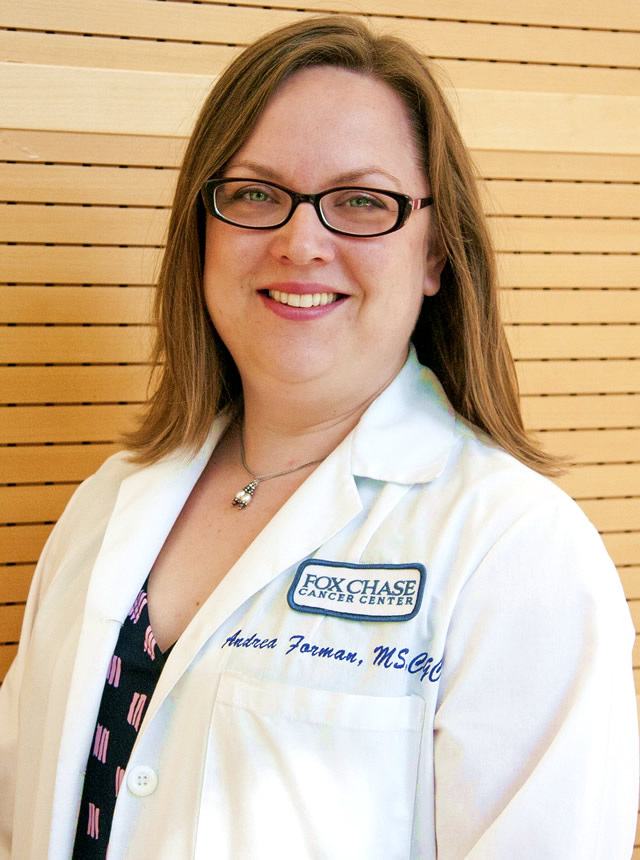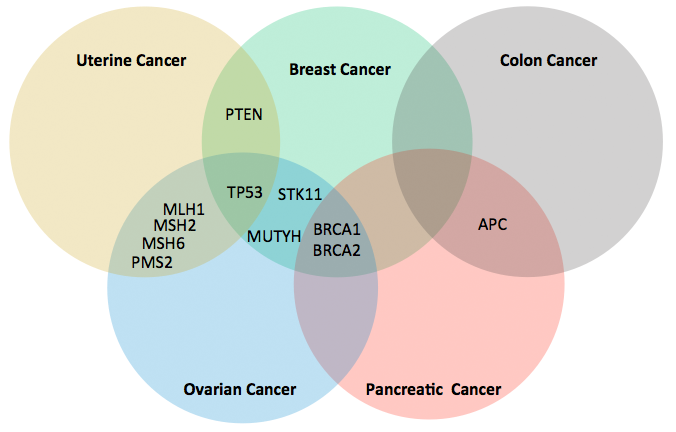
Ovarian Cancer Genetics: Many genes, many tests
-
From Prevention Matters Newsletter, Fall/Winter 2015

The National Comprehensive Cancer Network (NCCN) considers genetic testing of the BRCA1 and BRCA2 genes appropriate for any woman with a personal history of ovarian, fallopian tube, or primary peritoneal (the membrane that lines the abdominal and pelvic cavities) cancer. While most women develop ovarian cancer due to a combination of age, environment, lifestyle, and hormonal factors, it is estimated that about 15% of ovarian cancer patients are born with a gene mutation that increases their chances of getting ovarian cancer.
Genetic risk can be even higher if there is other family history of certain cancers. Most genetic risk for breast and ovarian cancer is found in the BRCA genes. The second most common genetic risk for ovarian cancer is found in the genes related to Lynch syndrome. Lynch syndrome increases the chances of developing ovarian, colon, uterine and other cancers.
Recently, the ability to complete genetic testing quickly and for less money has led to the discovery of more genes related to ovarian cancer. A study published in 2011 looked at 360 women newly diagnosed with ovarian, fallopian tube, or primary peritoneal cancer. Eighteen percent of women tested carried a mutation in the BRCA genes, and six percent carried mutations in other genes, such as TP53, RAD51C, RAD50, PALB2, NBN, MSH6, MRE11A, CHEK2, BRIP1, and BARD1. Thirty percent of positive women had no other family history of breast or ovarian cancer and over 35% were diagnosed after age 65.
This and other studies support the idea of testing all women with ovarian cancer for mutations in the BRCA genes, but also suggests thinking about testing through larger, multigene panels that include many genes in addition to BRCA1 and BRCA2. Lower costs have made multigene panel testing no more expensive than BRCA testing alone and it gives us the chance to discover genetic risks that would have been missed in the past.
More research is needed to clarify the specific ovarian cancer risks linked with these newer cancer genes. Sometimes medical recommendations are still not clear, even for gene positive women. Any decision to have genetic testing, for specific genes or a multigene panel, should be discussed with a genetic counselor, your doctor, or nurse. For more information about genetic testing for ovarian cancer risk at Fox Chase Cancer Center, call 1-877-627-9684 to schedule an appointment.
